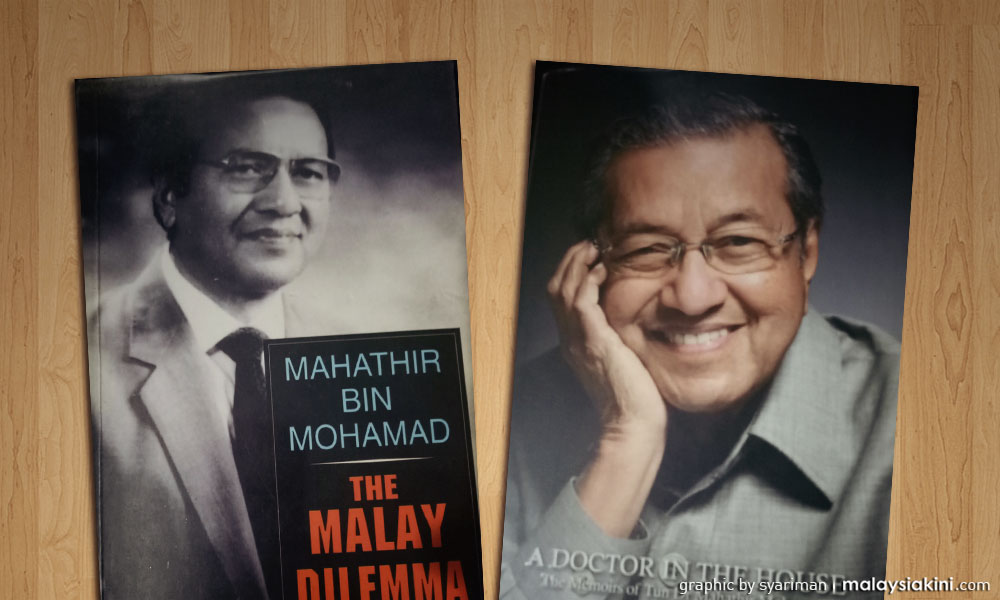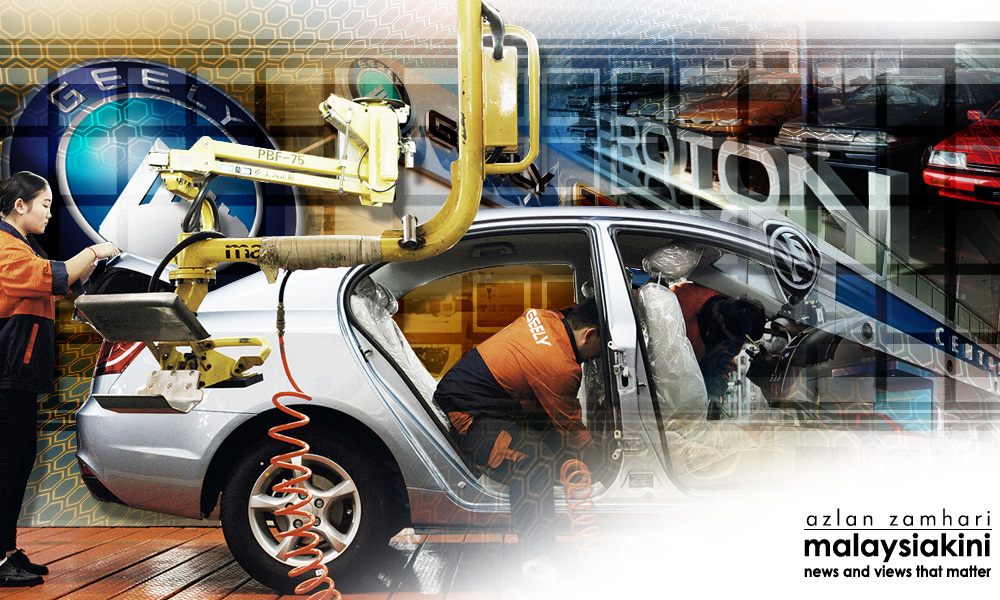In search of Malay entrepreneurs
MP SPEAKS | Amirul was my research assistant until he left to venture into a small business on his own. I met him last week and he showed me some beautiful pictures of fighting fish, which he breeds and sells. I was very impressed.
He told me he has applied for a government grant and was still waiting for a response. But he is not going to wait.
He and six other friends each came up with a thousand ringgit and started a home-based tropical ornamental fish farm. The quantity of fish he breeds is still very small and when there are more fish, he will then move to a bigger place, Amirul humbly told me.
The world ornamental fish trade is a multi-billion dollar business and Malaysia is among the top exporters of tropical ornamental fish, with an annual export value close to RM400 million. The prospect for expansion of the industry is good, since Malaysia’s share of the global market is less than 10 percent.
There must be thousands of micro fish farms in the country operated by individuals like Amirul. However, due to the lack of capital and technology, only a few hundred have made it to the export market.
When the New Economic Policy (NEP) was launched in 1971, one of the main strategies for the restructuring of society and the eradication of poverty was to create a broad-based Malay entrepreneurs class.

Unfortunately, despite the ambitious grand design, the creation of a broad-based Malay entrepreneurs class remains as lip service.
Politicians, high ranking government officials and their cronies and relatives were busy scrambling for pink forms for shares of listed companies, forming “Ali-baba” companies to lobby for government tenders and projects, and fighting for positions in GLCs.
The NEP hence resulted in the emergence of a class of Malay pseudo-entrepreneurs and corporate leaders.
Dr Mahathir Mohamad justified it in his book The Malay Dilemma that it is necessary to create a Malay capitalist class in order to compete with the foreign and the non-Malay capitalist class.
Subsidies were given to Malay smallholders, farmers, fishermen and small businessmen, but nothing much was done to modernise these sectors. Children of smallholders, farmers and fishermen were sent to universities so that they could get out of these poverty sectors.
During the 22 years of Mahathir’s premiership, the government was so obsessed with creating an advanced country image that the agricultural sector was totally brushed aside (less the big plantations).
It went to the extent to rename Universiti Pertanian Malaysia to University Putra Malaysia to reflect the “right image” of the university!
In 1983, Mahathir launched the national car - Proton Saga, which was in every sense a Mitsubishi car - from prototype to engineering, the platform and the body were all made by Mitsubishi.
However, in the end, the expected technology transfer did not happen. In 2017, Proton was finally sold to Geely, a China-owned company, due to losses.

Under Mahathir, SMEs were often ignored, if not treated with contempt, let alone the micro industries. Only foreign investments with high technology were welcomed with all forms of incentives and preferential treatments. It is only in the last seven to eight years that the contribution of SMEs to the economy has been acknowledged.
Recently, I went to Hamzah's Planet Steel, a workshop which produces rod iron grills and gates. The owner learned the skill from a vocational school and improved it on the job.
After 20 years in the business, he has only one worker and his son, who is still in school to help him. He is a typical micro-entrepreneur. He told me he wishes his son would learn the skill and take over the business one day.
Will his workshop ever have any chance to be upgraded to a small or medium-sized factory in the future?
The Taiwanese experience
Taiwan started its industrialisation in the 70s, about the same time as Malaysia. It, however, took a different approach to economic development.
While much efforts were given to attract foreign direct investments (FDI), the Taiwan government, at the same time, went full force to develop its SMEs, which later formed the backbone of its economy.
The entrepreneurship, efficiency, innovativeness and competitiveness of the SMEs made Taiwan one of the Four Little Dragons of Asia in the 80s, after Japan, Korea and Hong Kong.
Since then, the Taiwanese SMEs, with their technologies, expertise and excess funds, have opened up many new frontiers overseas in the past 30 years.

Neither did the Taiwanese government abandon the agricultural sector, the small farmers and fishermen.
Only 24 percent of the land in Taiwan is planted with agricultural products and most of the farms are small, with an average size of only 2.2 acres.
But through the adoption of mechanisation and advanced technologies, the annual overseas exports value of its agricultural products is US$5 billion.
Taiwan also has the largest distant water fishing fleets in the world and there are 30,000 modern fish farms operating with advanced technologies in the country. Gone were the days when fishermen fished on small fishing boats.
The pragmatic, down to earth and people-first development policy of the government has made the Taiwanese farmers and fishermen rich.
In the last three decades, a large number of poverty-stricken rural folk have migrated to Kuala Lumpur and other big cities in search of a better life. Many landed as lowly paid odd-job workers, hawkers and part-timers, while some remain unemployed.
Yesterday, when I was having tea with some members of the residents association in front of the Danou Kota flat, a group of young Malays came to talk to me and asked if I could help them. They have no permanent jobs and want to start a business but don’t know how and where to start.
I looked at them and could not help feeling sad and angry. To satisfy one man’s ego a generation is lost.
Mahathir‘s legacy of “Malaysia Boleh” has stunted the growth of Malay entrepreneurship, made a handful of Malay pseudo-entrepreneurs multi-millionaires and left the majority in poverty.
My only consolation is the emergence of a group young Malay leaders who don’t believe in the myth that “Ketuanan Melayu“ will make the Malays rich, and proclaiming a foreign-made car as our national car will not make Malaysia on par with the developed and technology-advanced countries.
And paying passenger fees to send a Malaysian to space does not mean we have developed our own space technology.
They understand pseudo-entrepreneurs are not entrepreneurs. The creation of a broad-based Malay entrepreneur class just has to start from the bottom.
I see how Rafizi Ramli is taking the pain to guide, groom and motivate young Malay entrepreneurs in their businesses through Invoke; I see how Nurul Izzah Anwar goes around promoting the batik cottage industry.
There are many others who think alike and move in the same direction as these young leaders.
Changing the current “syok sendiri” syndrome that has been ingrained in the society is not going to be easy, but I am confident that the time will come when these young leaders take over the government - and we will then see the implementation of a more pragmatic, realistic and people-centric development policy.
TAN YEE KEW is Wangsa Maju MP. - Mkini
The views expressed here are those of the author/contributor and do not necessarily represent the views of MMKtT.
✍ Credit given to the original owner of this post : ☕ Malaysians Must Know the TRUTH
🌐 Hit This Link To Find Out More On Their Articles...🏄🏻♀️ Enjoy Surfing!




















Post a Comment